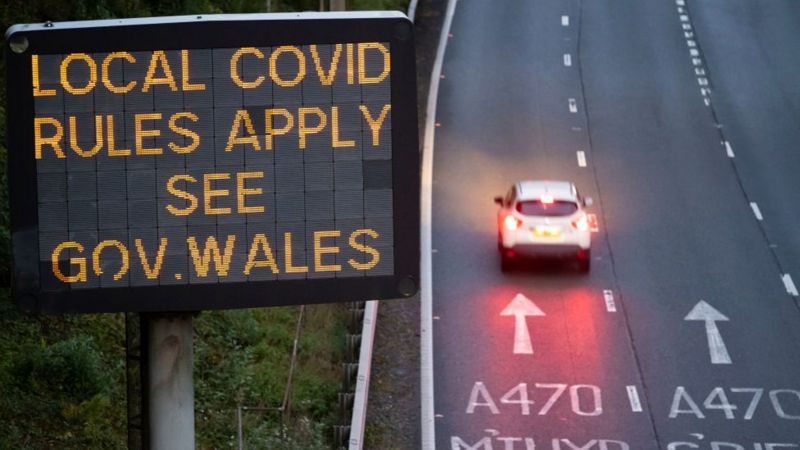So far in what has been a turbulent year in UK politics, Wales’s First Minister, Mark Drakeford has added fuel to the growing political conflict.
Historically, Drakeford has remained loyal to the union, however, it seems that even he has struggled to turn a blind eye to Westminster’s negligence.
The Welsh Government’s new travel ban means that those travelling from COVID hotspots elsewhere cannot travel into Wales as travel restrictions will be implemented. Travel restrictions have been a prominent feature in areas of Wales under local lockdown for weeks. Many citizens in some areas of Wales are unable to leave their local health protection zone without a reasonable excuse, in an attempt to contain the virus. These restrictions have been met with frustration in Wales, especially since citizens have adhered to strict rules, there have been no restrictions on visitors until now.
Across the UK, people have been discouraged from travelling at this time, but there have been no such enforceable rules to monitor this. Politicians from all over the UK have been critical of the lack of action taken by Johnson and Westminster have supported Drakeford’s decision to enforce a ban. In a Guardian article Drakeford emphasised that his actions were fundamentally a pragmatic step to protect Wales rather than a nationalist political tactic.
“I want to be clear: these regulations do not create a new border between Wales and the rest of the UK where there was none before. This is not a ban on people entering Wales. These are not the actions of some nationalist Welsh government asserting independence from the UK. And this is not the result of any sort of anti-English sentiment.“
Even First Minister of Scotland, Nicola Sturgeon reiterated this sentiment in her statement of support by tweeting:
“Fully support @fmwales on this. These are public health decisions and nothing to with constitutional or political debates. @scotgov will also take whatever action we consider necessary to control COVID.”
However, in the current political climate, it is difficult to separate decisive devolved legislation from the growing pro-independence feeling in the Celtic nations. Just last week, new polls showed that 58% of people would vote for an independent Scotland, given the opportunity.
Meanwhile, the traditionally more timid pro-Welsh independence figures have been growing also, with an August YouGov poll demonstrating support for independence at a record high of 32%, which has increased from June alone when this figure was previously at 25%. Oddly, this reflects the polling support for Brexit only a year before the referendum, and we all know how that turned out.
Indeed, growing dissatisfaction with Westminster’s incompetence has led to many believing that Celtic nations would be better off as self-determined. Drakeford confirmed he only took the action to impose a travel ban as his pleas with Westminster had been ignored. The Welsh First Minister has been left consistently frustrated with the communication with Westminster since March. Earlier, in September, Drakeford reported he had not been in contact with Johnson since May, while Sturgeon could not remember the last time she talked directly to the Prime Minister. By consistently ignoring calls from devolved leaders for support and strategy, Johnson risks breaking the Union for good.
Sioned Griffiths
Featured image source: The BBC

